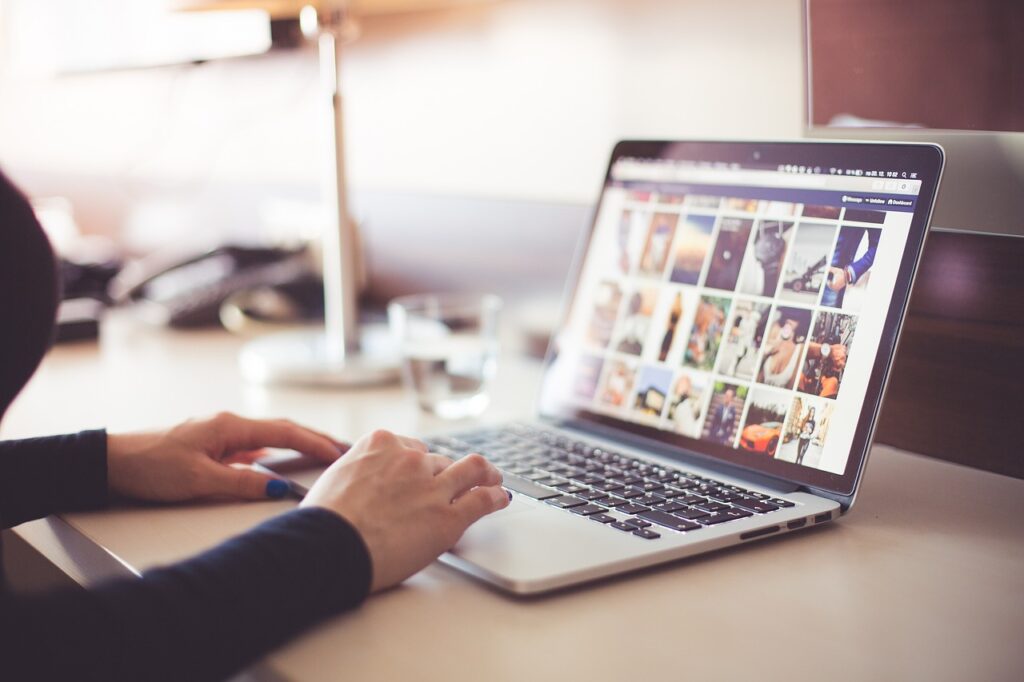
Social media has become an integral part of our lives, providing ways to access news, stay informed, and maintain connections with friends and loved ones. However, with it comes the risk of causing anxiety or unease as we compare our real-life experiences to the carefully curated images on our screens.
While screen time may be on the rise, anxiety doesn’t need to be. Here are some tips to reclaim control of your social media habits, steering clear of FOMO (the fear of missing out) and the all-too-familiar “doom scroll.”
Embrace Mindful Social Media Usage
The first way to manage social media anxiety is to be mindful of how you use it. Pay attention to what cues trigger excessive social media time. For instance, do you scroll when you’re sad, sleepy, or looking for distraction? Understand what it is you’re really looking for in these moments. If you’re tired, consider going for a walk or taking a nap. If you’re feeling down, you may choose to write in a journal or call up a friend.
Mindful social media usage also involves being aware of how the content you consume affects your mood and mental wellbeing. Ask yourself how posts or interactions tend to impact you, and don’t hesitate to unfollow or mute accounts that consistently leave you feeling anxious or inadequate. Remember: It is YOUR social media experience. It’s ok to curate your platforms to prioritize positivity and inspiration.

Practice Self-Compassion
In the age of curated online personas, it’s easy to fall into the trap of comparison and self-doubt. Instead of measuring your worth against others’ highlight reels, be kind to yourself and remember that what you see online is often a carefully cultivated version of reality. Show yourself compassion and focus on your own journey rather than comparing it to others’.
Self-compassion involves treating yourself with the same kindness and understanding that you would offer to a friend in a similar situation. When you notice critical thoughts arising, counter them with encouragement and support. Remember that everyone experiences struggles and setbacks—even those who seem to have a perfect life on social media.
Seek Support and Connection
Social media can sometimes heighten feelings of sadness or loneliness, especially for those already grappling with anxiety. However, it can also be a powerful tool for connecting with others who share similar experiences. Seek out online communities and support groups where you can share your experience and receive understanding from others who can relate.
If you’re feeling overwhelmed, don’t be afraid to reach out to a friend, family member, or mental health professional for support. Opening up about your feelings and experiences can ease some of the burden and offer helpful insights and perspectives.
Set Boundaries
Setting boundaries is crucial for managing your social media experience successfully. Take charge of how much time you spend on social media and be in the driver’s seat when it comes to when and where you use it.
Consider implementing “no-phone zones” or dedicated times each day to disconnect and focus on other things. There are many tools and apps that can help with this. Your device likely offers settings to limit screen time and prompts to exit social media apps and other programs after a designated time or duration. By setting boundaries around your screen time, you can avoid feeling overwhelmed and focus on the activities that bring you greater joy and meaning.
Embrace Mindful Social Media Usage
The first way to manage social media anxiety is to be mindful of how you use it. Pay attention to what cues trigger excessive social media time. For instance, do you scroll when you’re sad, sleepy, or looking for distraction? Understand what it is you’re really looking for in these moments. If you’re tired, consider going for a walk or taking a nap. If you’re feeling down, you may choose to write in a journal or call up a friend.
Mindful social media usage also involves being aware of how the content you consume affects your mood and mental wellbeing. Ask yourself how posts or interactions tend to impact you, and don’t hesitate to unfollow or mute accounts that consistently leave you feeling anxious or inadequate. Remember: It is YOUR social media experience. It’s ok to curate your platforms to prioritize positivity and inspiration.

Focus on Real-Life Connections
While social media can facilitate connections, it’s important not to neglect real-life interactions. Make an effort to nurture offline relationships and prioritize face-to-face interactions whenever possible. Spending time with loved ones in person can alleviate anxiety and be a powerful mood-booster.
Consider scheduling regular social activities or outings with friends and family members to maintain meaningful connections offline. Engaging in shared experiences and hobbies can strengthen bonds and provide opportunities for growth and connection.
Navigating anxiety in today’s complex digital world can be challenging, but with mindfulness and intention, it is possible to minimize its impact on your mental health and wellbeing. Remember: It’s ok to take breaks, ask for help, and put yourself first.